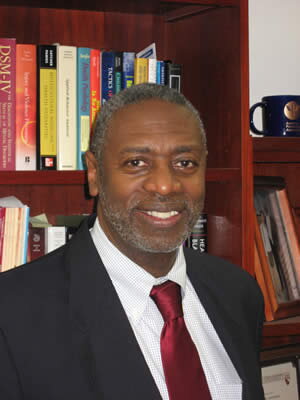
My passionate interest in helping people live their lives to their fullest potential is what attracted me to psychology. My early training and experiences prepared me for career opportunities that I could scarcely have imagined as an undergraduate in college. Ultimately, I identified as a health psychologist because it is a field that goes beyond traditional mental health and addresses broader health concerns.
When I started as an undergraduate at the University of Illinois at Urbana-Champaign, I hadn't decided on my major. To help finance my education, I took a part-time job in a child development research program sponsored by the psychology department. There, I observed young inner-city children in settings designed to enhance their learning. I saw first-hand the contributions psychology can make, and I knew I wanted to be a psychologist.
After completing undergraduate work in psychology, I went on to earn my doctorate, focusing on children, both in school and in the community. When I graduated, there was no such thing as a health psychologist. I started as an assistant professor in a doctoral program in school psychology at the University of Tennessee. But soon I went on to direct a children's program at Meharry Medical College in Nashville. As a psychologist in a medical setting, I could help children with health problems as well as their families and physicians.
At Meharry, I was in charge of an extensive and innovative program with an interdisciplinary staff. We worked with children who had developmental disabilities, dealt with child abuse and neglect, developed partial hospitalization for children with emotional problems, and created prevention programs for youth at risk. I then became assistant dean at Wright State University School of Professional Psychology in Ohio, where I trained clinical psychologists and directed a program to prevent homicide and violence among minority youth.
Most of my career was spent at the Centers for Disease Control and Prevention (CDC), where for 15 years I served as director of the Division of Violence Prevention at the National Center for Injury Prevention and Control (I retired in 2011). The division, with its budget of more than $100 million, manages research and surveillance programs; homicide; suicide; youth, family, and intimate partner violence prevention; and rape and sexual assault prevention.
As director of this CDC division, I oversaw the world's largest concentration of public health experts working on violence issues and prevention. These experts come from a variety of fields, including psychology, medicine, sociology, economics, and epidemiology. I was also involved in global efforts to prevent violence through the World Health Organization and Pan-American Health Organization.
Through my work, I was able to achieve a career level unprecedented by a psychologist--I was the first psychologist to serve as the director of a division of the CDC. As you can see from my experience and background, my early work as a health psychologist was the basis for--but just the beginning of--this adventure. Psychology is much more than the traditional roles you may be aware of. When you think of a career in psychology, think beyond those limited roles!
(published in American Psychological Association: Careers in Psychology, 2011)
W. Rodney Hammond, PhD, is the former (retired) Director of the Division of Violence Prevention within the National Center for Injury Prevention and Control at the Centers for Disease Control in Atlanta, GA
Throughout his CDC career, Dr. Hammond was dedicated to promoting a public health approach to prevent violence, both nationally and internationally. His efforts brought recognition to CDC as a world leader in violence prevention, and he engaged numerous partners, including the Robert Wood Johnson Foundation, Doris Duke Foundation, Annie E. Casey Foundation, UNICEF, and the United Nations Population Fund, in violence prevention activities. He represented CDC on the Violence Prevention Alliance, a network of World Health Organization Member States, international agencies, and other organizations working to prevent violence globally, as well as the National Forum to Prevent Youth Violence, which involved partnerships with the White House, the Departments of Justice, Education, and other federal agencies to address youth violence.
He is a Fellow of the American Psychological Association and has received numerous awards for his career contributions. He received the U.S. Dept. of Health and Human Services Secretary’s Award for Distinguished Service, for his efforts in public health and mental health collaboration and the Society for Research on Adolescence Award for Adolescent Research and Policy Integration. In 2006 he was inducted into the National Academy of Practice for distinguished contributions to health care in the field of psychology. In 2008, he received the William Bevin Award from the American Psychological Foundation for distinguished contributions to public policy. In 2010 he received the Nicholas Hobbs Award from the Society for Child and Family Practice of the American Psychological Association for lifetime achievements in child advocacy and policy. Also in 2010, the American Psychological Association honored him with a (APA) Meritorious Research Service Commendation for his leadership role at the Centers for Disease Control and Prevention in applying psychological science to the problem of youth violence.
He completed his undergraduate degree at the University of Illinois in Champaign-Urbana, IL and his Ph.D. in psychology at Florida State University in Tallahassee. He completed post-doctoral study at Harvard University.